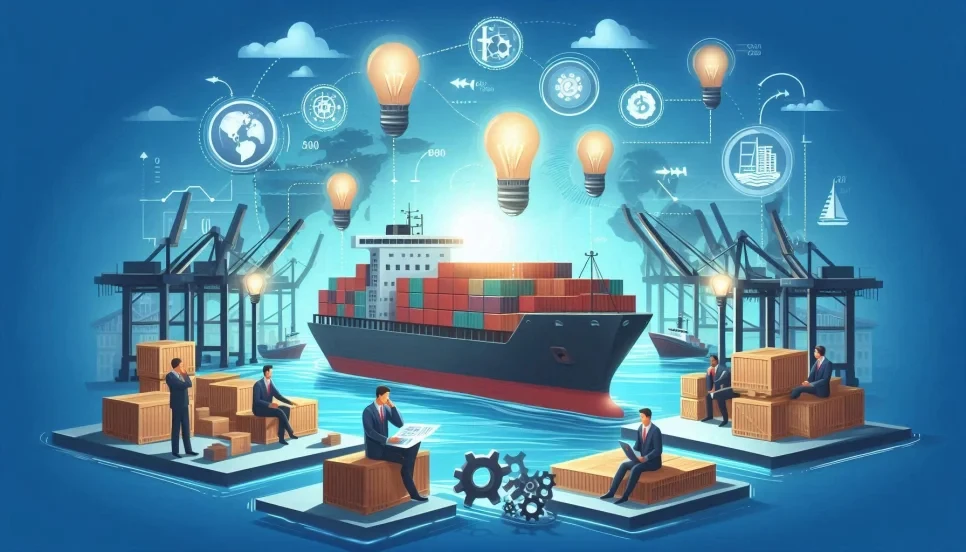In the ever-evolving and highly competitive shipping industry, offshore services have emerged as a critical component that ensures the seamless operation of maritime activities. These services are not just ancillary to the shipping business; they are integral to its success, supporting various facets of the industry from logistics and maintenance to safety and environmental management. Offshore services cover a wide array of specialized functions, including but not limited to, offshore supply vessels (OSVs), maintenance and repair operations, subsea engineering, offshore drilling, marine construction, and environmental monitoring. Their contribution is indispensable, making them a cornerstone of modern maritime operations.
The Role of Offshore Supply Vessels (OSVs)
Offshore supply vessels are vital in transporting goods, equipment, and personnel to offshore installations, such as oil rigs and wind farms. These vessels are designed to operate under the harshest of conditions, ensuring that offshore platforms are continuously supplied with the necessary resources to maintain operations without interruption. The efficiency of OSVs directly impacts the operational uptime of offshore platforms, which is crucial for the profitability of companies involved in offshore drilling and production. Without these vessels, the logistics of moving essential supplies across vast expanses of ocean would be untenable, leading to costly delays and potential shutdowns.
Maintenance and Repair: Ensuring Operational Integrity
The maritime industry is heavily reliant on the continuous operation of its fleet, and this is where offshore maintenance and repair services become invaluable. Offshore platforms, ships, and other marine structures are exposed to extreme environmental conditions, which can lead to wear and tear over time. Regular maintenance and timely repairs are essential to prevent catastrophic failures that could result in operational downtime or even environmental disasters. Offshore services providers specialize in performing these critical tasks in situ, often utilizing advanced underwater robotics, diving teams, and specialized repair vessels. Their expertise ensures that the integrity of maritime assets is preserved, extending their operational lifespan and enhancing safety.
Subsea Engineering and Offshore Drilling
Subsea engineering is another essential offshore service that supports the shipping industry, particularly in the exploration and extraction of underwater resources. This highly specialized field involves the design, installation, and maintenance of subsea infrastructure, such as pipelines, wellheads, and subsea production systems. Offshore drilling, a subset of this service, is crucial for the extraction of oil and gas from beneath the seabed. The expertise required for these operations is immense, involving state-of-the-art technology and a deep understanding of marine environments. The success of offshore drilling operations is directly tied to the efficiency and reliability of the offshore services supporting them, from initial exploration to production.
Marine Construction and Environmental Monitoring
Marine construction is another domain where offshore services are indispensable. Building and maintaining offshore platforms, wind farms, and other marine structures require highly specialized skills and equipment. Offshore service providers in this area offer a range of services, including seabed preparation, foundation installation, and the construction of complex superstructures. Moreover, as environmental concerns become increasingly important, offshore services also encompass environmental monitoring and management. These services ensure that offshore operations comply with environmental regulations, minimizing the impact on marine ecosystems and contributing to the sustainable development of marine resources.
Economic Impact and Technological Innovation
The economic impact of offshore services extends far beyond the shipping industry. These services are a major driver of employment, providing jobs for thousands of skilled workers around the world. Additionally, the need for advanced offshore services has spurred significant technological innovation, particularly in areas such as remote-operated vehicles (ROVs), autonomous underwater vehicles (AUVs), and advanced navigation and communication systems. These innovations not only enhance the efficiency and safety of offshore operations but also have broader applications in other industries, such as renewable energy and environmental science.
Future Prospects and Challenges
As the global demand for energy continues to rise, the reliance on offshore services is expected to grow. The shipping industry, in particular, will continue to depend on these services to support its operations and expand into new areas, such as deep-sea mining and offshore renewable energy. However, the industry also faces challenges, including environmental concerns, regulatory changes, and the need to adopt more sustainable practices. Offshore service providers will need to adapt to these changes, investing in new technologies and processes that reduce their environmental footprint while maintaining operational efficiency.
In conclusion, offshore services are not merely a support function within the shipping industry; they are a vital component that underpins the entire maritime sector. From ensuring the continuous supply of resources to offshore platforms to maintaining the structural integrity of maritime assets and supporting environmental sustainability, offshore services are essential for the long-term success and competitiveness of the shipping industry. As the industry continues to evolve, the importance of offshore services will only increase, making them a key area of focus for maritime companies looking to thrive in a challenging and dynamic global market.








Add New Review (Be the first to write a review)